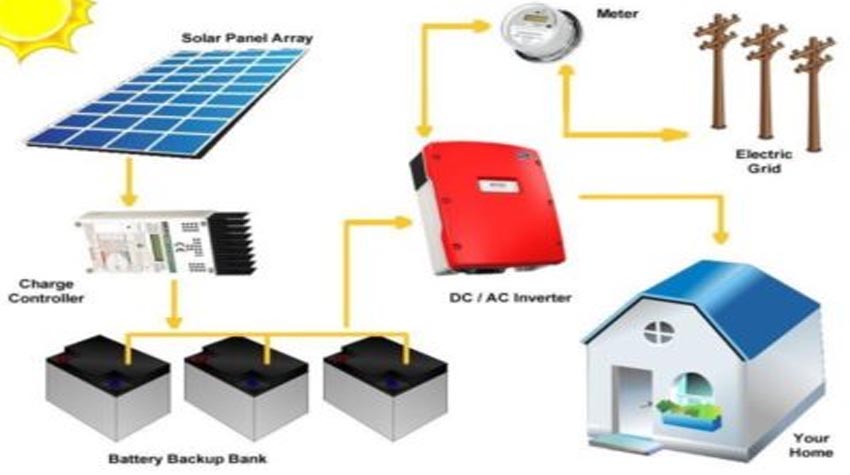
This year, California has entered a new reality where forced blackouts are a new norm during times of fire dangers. When this happens, understandably people behave in specific ways. There is a rush on purchases of batteries and cases of water. Everyone fills up their gas tanks, afraid that the planned backout could span into a days-long affair and there is a general feeling of uneasiness.
The good news is that there is an alternative to these practices. If you have solar panels on your home and a solar battery system that stores the energy that is created, you no longer have to rely solely on an increasingly unpredictable conventional electricity provider.
With a solar system, you can store solar energy during the day and then utilize that power at night, during a forced power blackout. You can even use the power stored in your battery system to avoid peak energy demand times, keeping your bill lower.
If you add our battery backup power systems to your smart solar installation, you will have seamless power backup to power your essential appliances and devices at home. So when the power goes out, your lights, refrigerators will still be on and devices such as your cell phone or laptop can also be charged as well. The amount of energy and number of things you can keep running during a blackout depend on the size of your battery storage system but done correctly, you could conceivably be able to store enough electricity to power your entire house for a limited amount of time.
How A Home Solar Battery Works in a Power Outage
A storage battery system consists of two boxes. There is a battery box and a small controller box, which functions as the brains of the system. The controller box is what automatically turns the system to battery power during a blackout.
The battery storage system connects to (and powers) a set of back-up breakers that are connected to the appliances and outlets that you want to power during an outage.
You select which appliances or how much of your house you want to power in a blackout, when the power goes out, so the controller quickly switches to solar battery power without any stress or effort. It’s that simple.
Tips for Preparing Home During an Energy Blackout
Unfortunately, if you’re reading this article today and you don’t yet have a solar plus storage system, you’re probably just worried about getting by during the next forced blackout. Here are some helpful tasks you can follow to prepare for the next time PG&E cuts off your power:
- Unplug appliances to avoid potential damage from power surges when the power is restored.
- Keep freezers and refrigerators closed. The refrigerator will keep food cold for about four hours. A full freezer will keep the temperature for about 48 hours. Use coolers with ice if necessary. Monitor food temperatures with a thermometer. If it’s higher than 40 degrees, it may not be safe to consume.
- Maintain food supplies that do not require refrigeration.
- Avoid carbon monoxide poisoning. Generators, camp stoves, or charcoal grills should always be used outdoors and at least 20 feet away from windows. Never use a gas stovetop or oven to heat your home.
Find Out If Your Home Qualifies For Solar Today
The truth is these forced blackouts are not going to stop. Installing a solar system and battery backup system in your home will not only help you avoid the stress and inconvenience of a forced blackout but will also give you many other added benefits. You can take control of your power spend, ensuring that your rates will not increase year-to-year. You can lower your power bill without having to limit the usage of high energy using appliances such as your air conditioning. And as an added bonus, you can do your part in reducing your footprint and helping the environment.
To find out if your home qualifies for solar, you can do so in three easy steps by clicking here.
